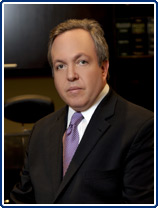Scott Silver Quoted In Advisor Hub Regarding FINRA Jurisdiction
 It’s not uncommon for employees of nearly any type of business to branch off and form their own company. When that company is a new broker dealer firm and a competitor for the former employer, things get complicated. Especially if that employer is Wells Fargo Advisors.
It’s not uncommon for employees of nearly any type of business to branch off and form their own company. When that company is a new broker dealer firm and a competitor for the former employer, things get complicated. Especially if that employer is Wells Fargo Advisors.
WFA alleges that their in-house attorney, Steven Satter, assisted seven brokers in forming their own independent advisory firm, RIA, based in Cincinnati. Satter is legal counsel for the new firm. The claim also alleges that Satter used and still uses confidential, in-house information in helping these brokers while still working for WFA. All violated their employment agreements.
In response to the petition filed in federal court by WFA, Satter filed briefs indicating that although he was not a registered broker with FINRA, he was, in fact, an “associated person.” If Satter’s request is successful, WFA could be forced into arbitration with FINRA over an employment agreement. Although he was not registered and not a broker, he performed many functions as an officer of WFA. The petition adds that Satter “had the authority to bind WFA and routinely did so, signing countless settlement agreements and other legally binding documents on WFA’s behalf.”
But in a previous legal action in 2021, Satter filed a motion to quash an order from a prior FINRA arbitration that denied him the status of an “associated person.” This arbitration involved UBS against a former financial advisor who moved to Wells Fargo. In it, Satter argued that he was never an associated person, and therefore, FINRA had no jurisdiction.
Satter seems to have changed his mind, according to his attorneys, and is researching the issue for a possible reconsideration.
The FINRA Associated Person
This term usually describes someone who is related to a broker, such as a spouse, child, sibling, or parent, as described in FINRA Rule 3210.
Should Satter be successful in becoming an “associated person,” the ruling could expand the definition to include others who would need to go though FINRA arbitration.
In the article, Silver Law founder Scott Silver said, “This case could open the door to allow investors who have been wronged by a brokerage firm to name the unregistered principals as respondents in FINRA arbitration.” Should Satter succeed in getting the case into arbitration, “I think it will raise alarm bells for officers and directors who believe they are evading regulatory oversight by not being registered,” Silver added.
Satter’s previous denial of being an “associated person” may work against his argument.
Silver Law Group Securities Arbitration Practice
Silver Law Group represents investors in securities and investment fraud cases. Our lawyers are admitted to practice in New York and Florida and represent investors nationwide to help recover investment losses due to stockbroker misconduct. If you have any questions about how your account has been handled, call to speak with an experienced securities attorney. Most cases are handled on a contingent fee basis, meaning that you won’t owe us until we recover your money for you. Contact us today at (800) 975-4345 and let us know how we can help.
 Securities Arbitration Lawyers Blog
Securities Arbitration Lawyers Blog

